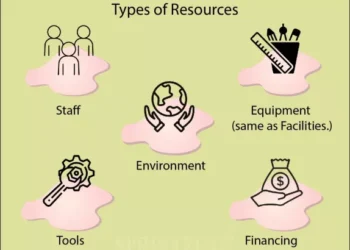Introduction
Estate planning is a daunting task for many, but no one wants to leave their share. Properties are valuable, and everyone understands that. The value sometimes may lead to conflict between the owners.
The situation gets worse when properties come forward with disputes. It becomes difficult to access a disputed property, and generally, the case goes to the court. For instance, if you do not trust the decedent’s will, you will not be able to find a resolution to it and go to court.
However, court and legislation can be a difficult solution to your problems. Instead, you can go for an alternative dispute resolution process. This can be fast and smooth if things go right. However, you will be able to find two forms of alternative dispute resolution process.
- Mediation.
- Arbitration.
What are these two forms, and how does it work?
We know that many questions are traveling inside your mind, and we are ready to give you a tour of answers here.
Well, you can find out more about the alternative dispute resolution methods here. It will help you understand and avoid the legislation of estate and its future planning.
What Is Mediation?
Mediation is a non-binding process that deals mainly with dispute resolution of a decedent’s estate. Well, it is also known as an alternative dispute resolution process considered by many.
It is conducted with the help of a single mediator. He will not play the role of a judge here, but his initiative is to facilitate the discussion and manage the whole resolution without dispute.
Undoubtedly, it is a voluntary process and comes with several benefits for both parties. However, both parties must have to accept the mediation process and the person who is on it. The mediator helps the parties communicate and understand each other’s positions and assists them in reaching a mutually acceptable resolution.
What Is Arbitration?
Arbitration is like a trial but not the same. This alternative dispute resolution process comes with a more formal approach and processes than mediation.
The aim is to get to a conclusion with the help of one or more judges. Here, the arbitrators act like judges, and they will take the decision at the end. This is called a binding decision that the enforceable court can follow.
Unlike mediation, arbitration is often a contractual agreement between the parties, meaning that they agree to submit their dispute to arbitration instead of going to court.
Here, the arbitrator listens to both parties’ arguments with dedicated evidence. Based on the facts present and with the involvement of both parties and their evidence, getting into the final decision is quite obvious for the arbitrators.
The arbitrator’s decision is usually final and binding, although limited appeal rights may exist.
Different To Notice
When it comes to resolving disputes, it’s important to understand the differences between mediation and arbitration.
In mediation, the mediator doesn’t make decisions for the parties but rather facilitates the conversation. In contrast, an arbitrator focuses on making decisions depending on the evidence and situation.
Medication is conducted by a neutral third party and considers a mutually accepted resolution. On the other hand, arbitration is a process where a neutral third party makes a binding decision on the dispute.
The Success Of Mediation In Modern Litigation
Mediation has proven to be a highly successful alternative dispute resolution process in modern litigation. Mediation is a voluntary process that helps parties resolve disputes without going to court. It also has several benefits for both parties to counter the estate.
Well, arbitration is a more formal approach. It also considers the contractual agreement between parties. On the other hand, mediation is a non-binding process conducted with the help of a single mediator.
The mediator facilitates the discussion and manages the whole resolution without dispute. They try to help the parties with communication and understanding of the situation. They help parties to reach a mutual acceptance point with better discussion and understanding.
Mediation is a quick, cost-effective, and efficient way to resolve disputes in modern litigation.







